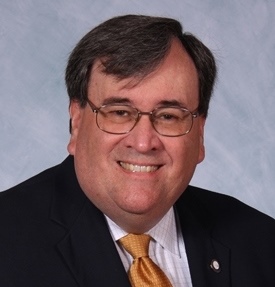The motivation not to speak up may be because one has nothing to say. It may, however, be because there is so much to say, but one represents so many different opinions.
An emerging and dangerous trend in America is for corporate CEOs to write opinion pieces and jump on television to comment on political and social issues. In apparent attempts at standing for social justice, advancing a cause, or simply to prove oneself relevant and engaged, mostly these executives are only proving the old adage that you can’t please everyone.
Every corporate position seems to bring a boycott, social media furor, and unequal and opposite reactions. Board members, stakeholders, and consumers all ask how the CEO could possibly speak for everyone when it seems that as a country we are divided on, well, everything. I’m not sure that even sliced bread, Mom, or apple pie could bring unanimous consent right now!
In the Society of St. Vincent de Paul, only the National President of a country can “speak for the Society”, and this can be prudently delegated for local issues, during crisis situations, or when the CEO (in countries that have them) is so allowed, usually on administrative issues. This is a precious, protected, and potentially dangerous responsibility. We have all seen instances when a reputation was harmed more by the response than by the originating action.
Our National President Ralph Middlecamp and I routinely get asked to speak up about an issue of great importance to the one making the request. Many such requests are in regard to valid concerns either to Americans, Catholics or Vincentians, and perhaps to all three. Ralph and I could distribute a scathing press release, get on Twitter, or hold a news conference almost daily. Here is why we don’t.
First, we try to “stay in our lane” as the Society. While there are many issues and causes that fall under Catholic Social Teaching, for example, the Society’s sweet spot is in matters that concern our friends in need. While a dotted line could be drawn from almost anything to how it more adversely affects people in poverty, we choose to focus on the more direct issues and impacts. Admittedly this can be a fuzzy line to draw.
Second, we recognize that while all of our members are united in their Vincentian spirituality, they are not so aligned in their politics, social causes, or even their views on the Church. We feel it is disingenuous to speak on matters without hearing from you, and we can for the most part be assured that there is no unified Vincentian opinion. You can speak for yourself without a Vincentian “tag” that inadvertently ties us together against your will.
Third, and just as importantly, when you stand for everything you stand for nothing. Not everything warrants a response. Responsible leaders, and usually the most effective ones, speak more rarely and thus are heard when they do speak. Think about the celebrities and political opinion givers: Are their comments sometimes above, or below, their jobs or relevance in our lives? Haven’t we all at one time asked why we should care about that actor’s opinion, or why the elected representative is commenting on an issue s/he clearly knows so little about? While it is our American birthright to be free to give an opinion, it doesn’t mean we should use it so darn often.
When you see that President Ralph (or me, or our national Voice of the Poor group) has commented publicly on an issue, know that it has been carefully considered in light of the above. Likely there was a discussion first about our specific Vincentian/SVdP stake in the game, our objectives in speaking, and how we think our members will respond. That’s what servant leaders do. Together we don’t want to be just another voice; we want to be your voice.
Yours in Christ,
Dave Barringer
CEO

